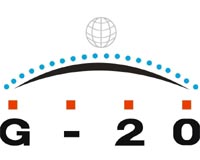 |
Yokohama, Japan (AFP) Nov 12, 2010 Hong Kong's leader warned Friday that a move to inject billions of dollars into the ailing US economy could inflate Asian asset bubbles and trigger a repeat of the region's 1997-98 crisis. Chief Executive Donald Tsang said there was a risk of "unprecedented market turbulence" in currencies, bonds and stocks and warned that Hong Kong is ready to take new, anti-speculative steps to cool its over-heated property market. "I am very much concerned about the impact of the US second round of quantitative easing on Asian economies," Tsang said, referring to the Federal Reserve's controversial 600-billion-dollar attempt to reflate the US economy. Critics worry the cash surge will not only further dilute the value of the dollar but add to the flood of money that is chasing higher returns in Asia and dangerously inflating stock, bond and property markets. "This has increased the risk of asset bubbles, which will impact on our financial stability as well as regional and global economic growth," Tsang said at a business forum in Yokohama, Japan. The popping of "emerging bubbles in different pockets" of Asia's securities and property markets would be "highly infectious", he said. "And the end result is you can see a second wave... similar to the one we had in 1997 and 1998, when there was an over-exuberance in our markets. This is exactly the case now. "All you need is one major conglomerate or one large bank... suffering a shock... and suddenly you can see a tsunami-style" effect, Tsang said at the event, held on the eve of an Asia-Pacific Economic Cooperation (APEC) summit. There has been widespread foreign condemnation of the US policy of printing billions of new dollars as a stimulus measure, including at the G20 summit which US President Barack Obama was attending in Seoul Friday. Critics say the fresh liquidity could further drive down the dollar and exacerbate the threat of "currency wars" in which nations seek to cap or weaken their currencies to make their exports more competitive. New Zealand's Prime Minister John Key, speaking at the same business event, warned on currency policies that "if we don't get this right, it's my view that we will see currency wars, we will see retaliatory action taken. "That would be bad for economic growth, it would have unintended consequences and it would be bad for integration in the region," he said. Key added that "escalating tensions when it comes to exchange rate policy run the risk of derailing economic growth. That would not only be bad for Asia but that would be bad globally." Hong Kong's Tsang said the "exceptionally abnormal" environment called for vigilance from policymakers, who should be "fully prepared and take all forms of action to avoid systemic risks that might disrupt our recovery". Hong Kong last month laid out measures to cool the world's hottest property market, including a halt to granting automatic residency rights to rich buyers and a rise in stamp duty on luxury sales. "But we will not stop here. We will not hesitate to introduce further anti-speculative measures when there is need to do so," Tsang said, adding that to maximise the impact "there will be no prior notice" before they are imposed.
Share This Article With Planet Earth
Related Links The Economy
 G20 leaders kick off stormy summit
G20 leaders kick off stormy summitSeoul (AFP) Nov 11, 2010 The world's 20 biggest rich and emerging powers were locked late Thursday in anguished talks on fixing distortions that threaten global growth, as their leaders kicked off a fractious summit. The United States, striving to recover from its worst economic crisis in decades, locked horns anew with exporting giants China and Germany over a plan to rebalance skewed trade between deficit and surp ... read more |
|
| The content herein, unless otherwise known to be public domain, are Copyright 1995-2010 - SpaceDaily. AFP and UPI Wire Stories are copyright Agence France-Presse and United Press International. ESA Portal Reports are copyright European Space Agency. All NASA sourced material is public domain. Additional copyrights may apply in whole or part to other bona fide parties. Advertising does not imply endorsement,agreement or approval of any opinions, statements or information provided by SpaceDaily on any Web page published or hosted by SpaceDaily. Privacy Statement |